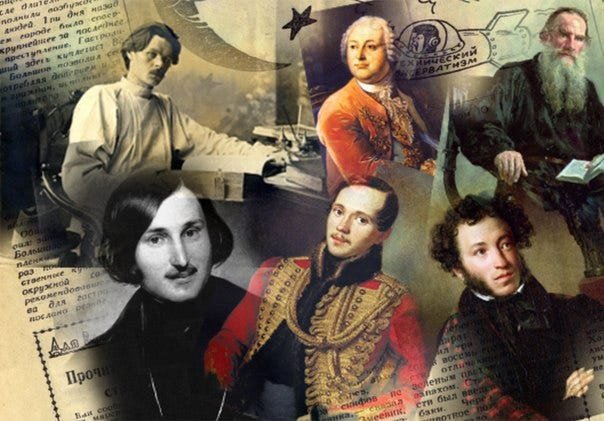Nabeela Shaukat
Russian literature boasts a rich and complex history, captivating readers worldwide with its depth, emotional intensity, and unique cultural perspective. However, to analyze its “quality” and “appeal” demands a critical approach, recognizing both its strengths and potential shortcomings.
Strengths:
- Psychological Depth: Russian authors excel at exploring the inner lives of their characters, delving into complex emotions, motivations, and moral dilemmas. From Dostoevsky’s tortured Raskolnikov in “Crime and Punishment” to Tolstoy’s flawed Anna Karenina, these characters resonate with readers due to their nuanced portrayals of the human condition.
- Social Commentary: Many Russian masterpieces weave social and political criticism into their narratives. Gogol’s satirical “Dead Souls” exposes the absurdity of serfdom, while Solzhenitsyn’s “The Gulag Archipelago” confronts the brutality of the Soviet regime. This fearless engagement with societal issues adds power and relevance to the stories.
- Lyrical Language: Russian prose is renowned for its beauty and musicality. Pushkin’s poetry and Chekhov’s plays masterfully utilize language to evoke emotions and create vivid imagery. Even in translation, the rhythmic quality and descriptive richness remain captivating.
- Philosophical Exploration: Existential questions and the search for meaning permeate much of Russian literature. From Turgenev’s “Fathers and Sons” to Dostoyevsky’s “Brothers Karamazov,” authors grapple with profound issues like life, death, free will, and faith, sparking contemplation in readers.
Potential Shortcomings:
- Focus on Suffering: The emphasis on tragic narratives and characters enduring hardship can sometimes feel overwhelming for readers seeking lighter themes. The bleakness of certain works, while powerful, might not resonate with everyone.
- Cultural Specificity: The deeply embedded cultural context can pose barriers to understanding for non-Russian audiences. Historical references, social norms, and literary allusions might require additional explanation.
- Male-Dominated Landscape: Traditionally, Russian literature has been dominated by male voices and perspectives. While there are notable exceptions like Anna Akhmatova and Marina Tsvetaeva, female protagonists and authors are historically underrepresented, potentially limiting the range of experiences explored.
Enduring Appeal:
Despite these potential shortcomings, Russian literature continues to enthrall readers worldwide. Its strengths offer timeless insights into the human condition, societal struggles, and existential questions. The emotional depth, philosophical exploration, and masterful use of language provide enriching experiences, even with translations bridging cultural gaps.
Ultimately, the quality and appeal of Russian literature depend on individual preferences and interpretations. Its strengths undoubtedly contribute to its enduring legacy, while acknowledging its limitations fosters a more nuanced appreciation of this complex and captivating literary tradition.
Please, subscribe to the YouTube channel of republicpolicy.com
















